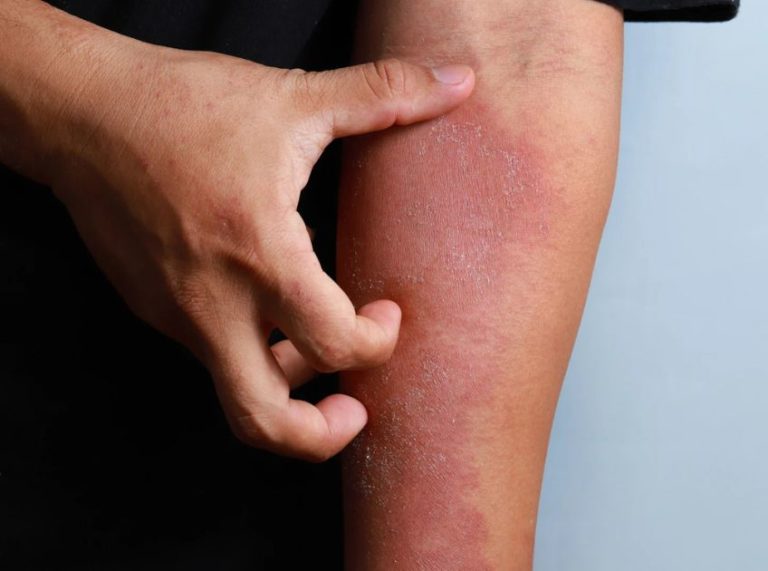
Important: This article is for informational purposes only. Please read our full disclaimer for more details.
You might feel that sore throat and diarrhea are two distant diseases and have no connection between them. They appear unrelated and disparate, but medical science has revealed fascinating connections between them.
This understanding has now paved the way for effective management of the two illnesses.
In this article, we will dive deep to understand the link between sore throat and diarrhea to explore their potential causes, symptoms, preventive measures and most effective treatments. This is going to overall help you to be equipped to handle the condition in case you suffer from them simultaneously.
The Correlation Between Sore Throat and Diarrhea

Diarrhoea and sore throat are associated as they both are observed during certain infections and systemic illnesses (1). They mainly occur together to fight off bacteria, viruses, and other harmful pathogens that affect the respiratory and gastrointestinal systems.
Sometimes, they may also occur together due to some complex underlying issue.
Symptoms of Sore Throat and Diarrhea
Diarrhoea: During diarrhoea a person may experience frequent loose and watery stools accompanied by abdominal cramps and discomfort. The bowel contracts abruptly during diarrhoea leading to cramps.
At the same time, the person may also suffer from nausea and vomiting. Diarrhoea can lead to fluid loss resulting in dehydration that may cause excessive thirst, dark urine, dry mouth, dizziness, and fatigue (2).
Sore throat: During sore throat, there is pain and irritation in the throat. There is a painful sensation in the throat area that makes it difficult to swallow or speak (3).
What Causes Sore Throat and Diarrhea?
- Bacterial infections: Some bacteria, like streptococcal bacteria, cause sore throat. If these infections spread to the gastrointestinal system, it may lead to diarrhoea as well.
- Viral infections: Viral infections like the common cold or influenza may trigger sore throat and diarrhoea. Such viruses can quickly spread through contact with contaminated surfaces or respiratory droplets.
- Gastrointestinal infections: If the gastrointestinal tract is affected by bacteria, viruses, or parasites, it can lead to gastrointestinal diseases. This can lead to diarrhoea and may also cause sore throat at the same time.
- Dehydration: Diarrhoea can result in quick loss of body fluids and electrolytes, leading to dehydration. In some cases, this dehydration may cause throat soreness and irritation and prolong recovery time.
- Adenovirus infection: Adenovirus infection causes both sore throat and diarrhoea.
- COVID-19: COVID-19 has many symptoms, amongst which are sore throat and diarrhoea, which are very common (4).
- Norovirus: It can cause diarrhoea directly and sore throat indirectly.
- Allergies: Food allergies and food poisoning may also cause the occurrence of sore throat and diarrhoea simultaneously.
- Acute gastritis: Diarrhoea is an early symptom of acute gastritis. It may lead to throat irritation (5).
- Mixed causes: Multiple infections at the same time may cause sore throat and diarrhoea.
How to Treat Sore Throat and Diarrhea?
Here are some measures to take if you suffer from sore throat and diarrhoea simultaneously.
- Over-the-counter medicines: Over-the-counter medicines like throat lozenges and anti-diarrhoeal drugs can provide temporary relief and help to ease the symptoms.
- Rest– Allow the body to rest and recover. The body becomes frail during the sore throat and diarrhoea. If proper rest is taken, the recovery process is faster.
- Water– Drink plenty of fluids to replenish the loss of body fluids. This is extremely essential as lots of nutrients are lost along with body fluids during diarrhoea.
- Gargle– Gargle with warm salty water to soothe a sore throat, and use a humidifier to ease the air dryness and improve throat infection. Intake of probiotics may help to regain gut health after diarrhoea.
How to Prevent Sore Throat and Diarrhoea
There are various preventive measures that can be taken to avoid sore throat and diarrhoea occurrence:
1. Fluid Intake: Staying hydrated is an effective way to promote throat health and avoid diarrhoea. Intaking fluids like water, oral rehydration solutions, herbal teas, clear broths, etc. can help to avoid sore throat and diarrhoea.
2. Avoid triggering foods: Avoid eating trigger foods and beverages that can irritate the throat like spicy, greasy, or acidic items.
3. Hygiene: Practice good hygiene habits like washing hands frequently after using the bathroom coughing, or sneezing. This helps to prevent the spread of virus and bacteria that may cause sore throat and diarrhoea.
4. Vaccinate: Take vaccines regularly, especially for streptococcal infections and influenza, to avoid the risk of these diseases and reduction of complications.
When Should You See a Doctor?
Many cases of sore throat and diarrhoea can be cured at home using over-the-counter medications and proper care. However, if the symptoms persist for a long time, it becomes imperative to consult a health care provider. The professional will diagnose the actual reason behind the ailment and treat you accordingly.
If the following symptoms occur simultaneously along with sore throat and diarrhoea, they might need medical attention:
- High fever: The presence of a high fever, above 101°F may be a sign of a more severe infection. Though fever is a sign of the body’s fight against infections, if it occurs along with sore throat and diarrhoea, it is important to take medical advice.
- Severe dehydration: Severe dehydration can lead to significant fluid loss that may result in dehydration. At such times, the body may experience dizziness, dry mouth, extreme thirst, fatigue, and confusion. If it happens to someone, the person must take a doctor’s appointment immediately.
- Difficulty in breathing: Sometimes sore throat and diarrhoea may lead to difficulty in breathing. This could be a sign of respiratory tract infection or an underlying cause that can be diagnosed only by a medical professional.
- Continuous vomiting: You must take a doctor’s appointment for proper diagnosis if you observe continuous vomiting along with diarrhoea and sore throat. It is possible that this could point towards an issue with the gastrointestinal system. The situation may worsen if not treated on time.
- Strep throat: symptoms like swollen nodes, fever, sore throat and white patches indicate strep throat. The reason could be bacterial infection and must be treated with proper antibiotics to prevent further spread.
Conclusion
Exploring the link between sore throat and diarrhoea can give insight to its related causes and strategies to effectively manage it. Once there is information of various possibilities and defensive mechanisms, such conditions can be managed successfully. However, seek an expert’s opinion if the symptoms persist for a long time or get worse over time.
Image Source : freepik
Related Articles
- 10 Best Food For Diarrhea
- Diarrhea Every Morning: Causes, Treatment and Side effects
- How to Take Apple Cider Vinegar for Diarrhea?
- What’s the Connection Between Diarrhea and a Cold?
















